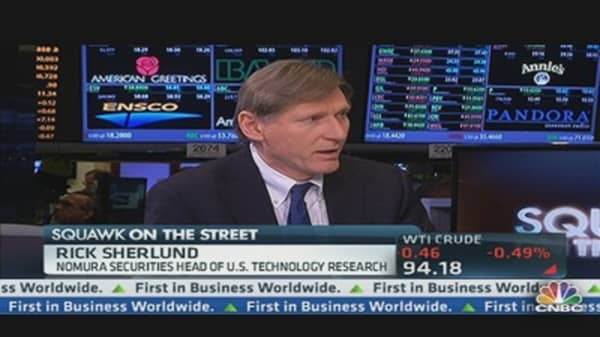IDC also laid blame on Microsoft's Windows 8 software, which attempted to bridge the feel of a tablet with a traditional computer operating system, but consumers have not embraced the product.
"At this point, unfortunately, it seems clear that the Windows 8 launch not only failed to provide a positive boost to the PC market, but appears to have slowed the market," said Bob O'Donnell, IDC Program vice president, clients and displays, in a statement.
Microsoft was downgraded by at least three firms Thursday morning, including widely followed analyst Rick Sherlund, head of technology research at Nomura. Sherlund took the stock to "neutral" from "buy," but still sees it as a value play. Goldman Sachs, meanwhile, cut the stock to "sell" from "neutral."
(Read More: No Microsoft Office for iPhone Until 2014: Report)
"Microsoft and some of the other tech names have had a big move over the last couple of days because some data points coming out of Asia, the manufacturers, that March was a pretty good month for building machines," said Sherlund in an interview on CNBC. "I think people were expecting PCs to be down about 7 percent in the quarter, and so down 11 to 14 when you are trying to calibrate how stable is this market, it just sort of feels like a very, very slippery slope."
Sherlund expects an upgrade cycle the industry has been waiting for to help but the deterioration has been much worse than expected.
"I think there is a good upgrade cycle coming later in the year if you can get these new ultrabook touch devices at $600 and get 10 hours of battery life because while a lot of consumers buy tablets, in fact we all do, half of us still produce content on a notebook so we have both devices, and these notebooks we're using are so out of date," he said. "So if you can get for $600 something that has 10 hours of battery life that's thin and lightweight…I think we'll start to get some benefit from that."





